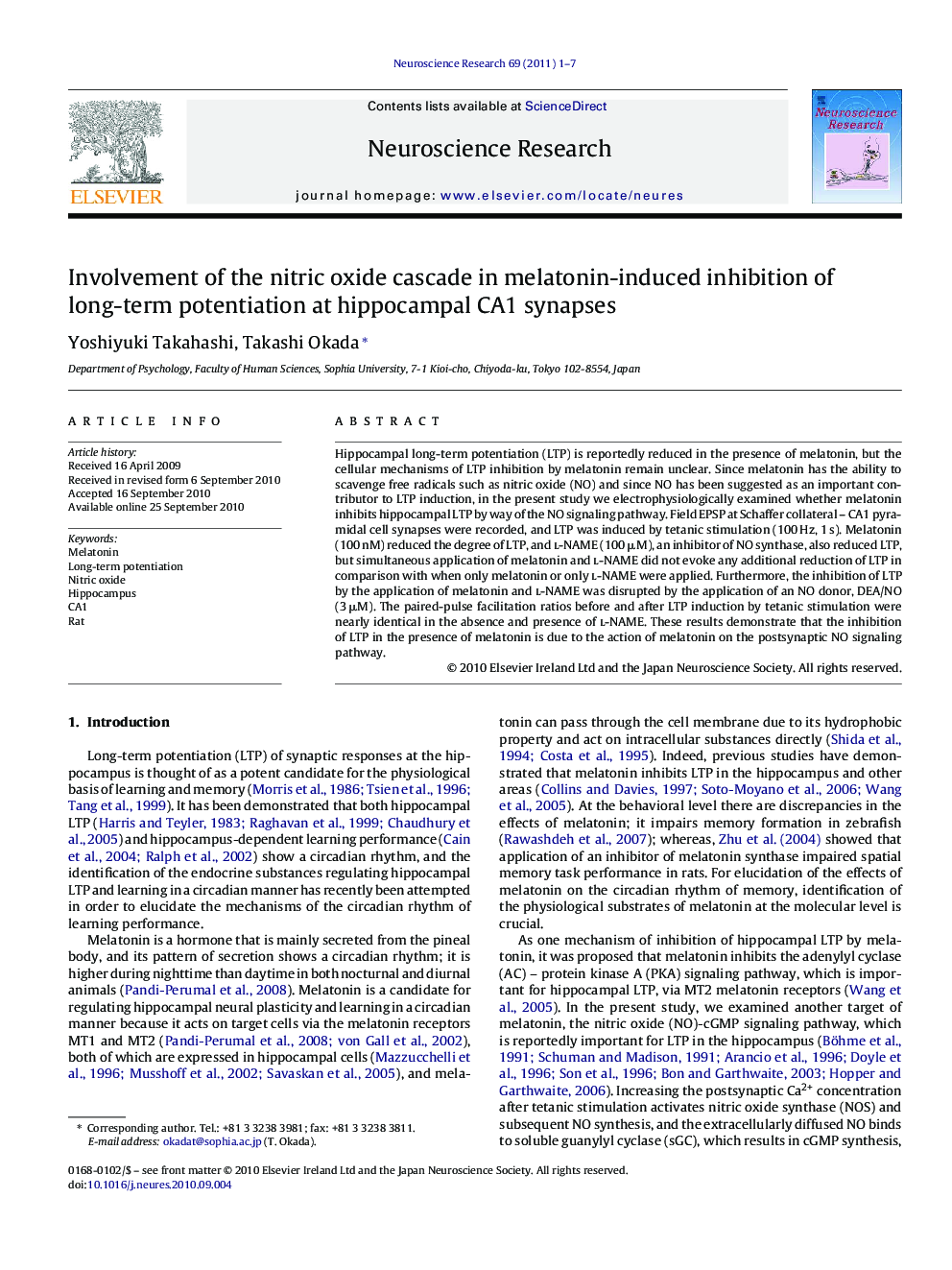| Article ID | Journal | Published Year | Pages | File Type |
|---|---|---|---|---|
| 4352187 | Neuroscience Research | 2011 | 7 Pages |
Hippocampal long-term potentiation (LTP) is reportedly reduced in the presence of melatonin, but the cellular mechanisms of LTP inhibition by melatonin remain unclear. Since melatonin has the ability to scavenge free radicals such as nitric oxide (NO) and since NO has been suggested as an important contributor to LTP induction, in the present study we electrophysiologically examined whether melatonin inhibits hippocampal LTP by way of the NO signaling pathway. Field EPSP at Schaffer collateral – CA1 pyramidal cell synapses were recorded, and LTP was induced by tetanic stimulation (100 Hz, 1 s). Melatonin (100 nM) reduced the degree of LTP, and l-NAME (100 μM), an inhibitor of NO synthase, also reduced LTP, but simultaneous application of melatonin and l-NAME did not evoke any additional reduction of LTP in comparison with when only melatonin or only l-NAME were applied. Furthermore, the inhibition of LTP by the application of melatonin and l-NAME was disrupted by the application of an NO donor, DEA/NO (3 μM). The paired-pulse facilitation ratios before and after LTP induction by tetanic stimulation were nearly identical in the absence and presence of l-NAME. These results demonstrate that the inhibition of LTP in the presence of melatonin is due to the action of melatonin on the postsynaptic NO signaling pathway.
